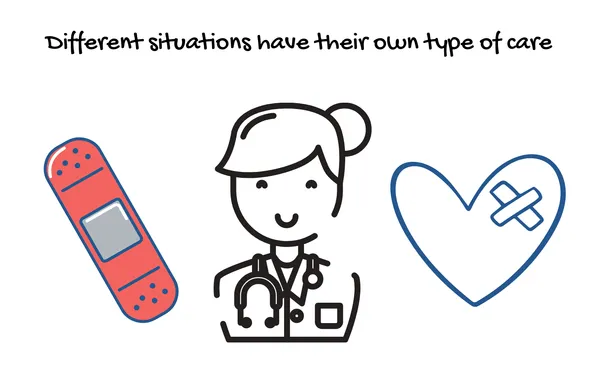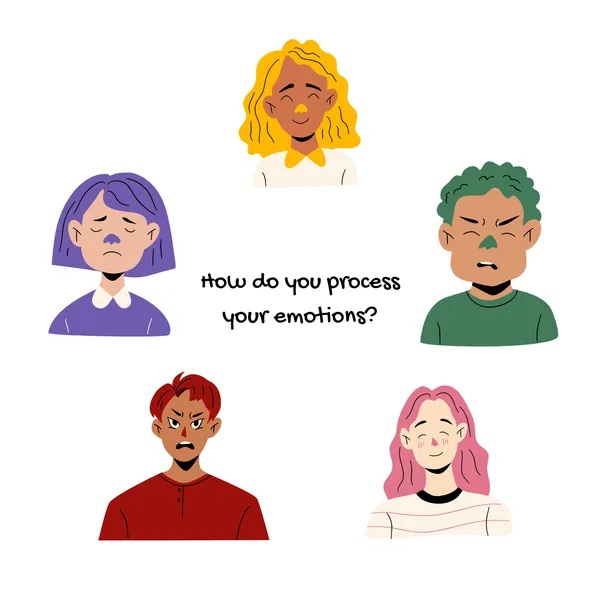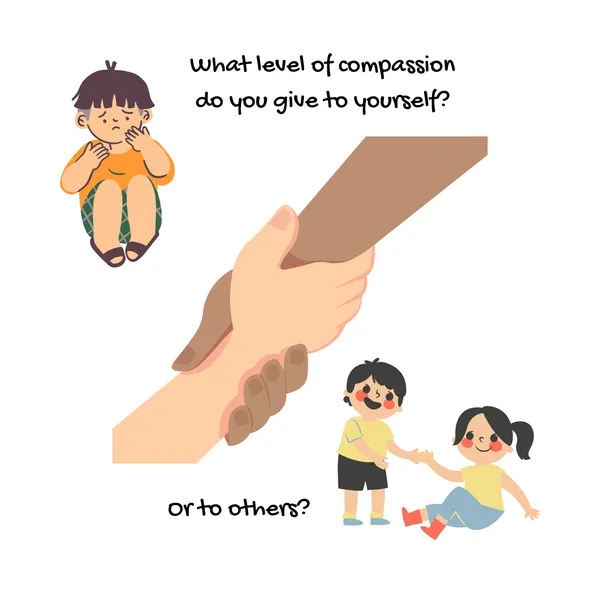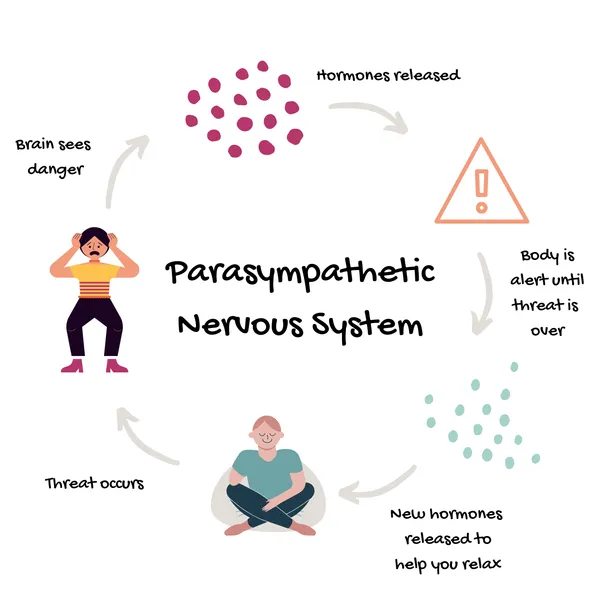Being Kinder to Yourself
This blog post is associated with episode twp of the podcast on Being Kind to Yourself with Self-Compassion.
“30 Ways to Practice Self-Care”
“Self-Care: 12 Ways to Take Better Care of Yourself”
“50 Ways to Start Practicing Self-Care”
These are headlines of the many articles that we have seen over the past few years, especially with the rise of the pandemic in 2020. On Google Trends, self-care hit its peak with the number of searches in 2020, which is a 75% increase compared to the previous year. The top associated terms with self-care include preventative healthcare, self-care plans, and mindfulness. You might be looking up tips for working from home or wanting some ideas to have a balanced lifestyle and self-care will likely pop up. The typical activities in those lists include going for a walk, diffusing some essential oils in your home, meditating, and journaling. Some will even tell you to stress less and be happy. I wish it could be easy to think, “I want to stress less” and for that to just happen. The reality is, there is so much more to what it means to “feel better.”
Now, I’m not saying that you shouldn’t go for a walk or consider running a diffuser in your home (I love the Liquid Sunshine oil from Saje), because who doesn’t want to have less stress? However, when we look at these lists over and over again online, there is one thing they all have in common: they all tell you to do something that makes you feel good at that moment.
You can picture this as a bandage for when you’re having a challenging day. Bandages do a great job at helping you heal and take away some of the pain because it’s removing exposure to the wound. If it’s a small cut that isn’t deep, bandages will usually do the trick. But what if you had a big tumble and needed stitches? It’s unlikely that a doctor will give you a bandage and call it a day. For these situations, a different level of care is needed to help heal these wounds. Despite the growth of interest in self-care, many articles only provide you with a list of things to do but rarely do they go in-depth about what self-care means.

In 1988, the World Health Organization defined self-care as:
“The ability of individuals, families and communities to promote health, prevent disease, maintain health, and to cope with illness and disability with or without the support of a healthcare provider.”
Despite this first appearing over 30 years ago, this is still on their website to date. You might notice that a major part of that definition covers areas of your physical health like hygiene, nutrition, lifestyle, environmental factors, socioeconomic factors, and self-medication. Interestingly, all of these components refer to your social and physical health but there is no mention of mental health at all. It’s a bit strange that such a large organization that is meant to focus on health does not include mental health as part of its definition.
Let’s break down self-care a little bit more. Going back to how self-care is like a bandage, there are multiple kinds of bandages that are used for different situations. These situations can be thought of as the various components of our well-being, which require their own self-care. In this case, we’ll review five different types.
1. Physical Self-Care: This is the most obvious and commonly spoken about form of self-care. This includes how much sleep you’re getting, the amount of physical activity you are doing, and how you’re fueling your body. It could be going to regular check-ups with your doctor, dentist, and optometrist or making sure you’re eating nutritious food.
2. Social Self-Care: This refers to connecting with others and putting in the time and effort to develop your relationships. This also looks different for everyone depending on what their social needs are and there isn’t a checklist or a specific number of hours you spend on this. Instead, you might reflect on when the last time you spoke to your friends was or what kind of things are you doing to build on your relationship with others?
3. Spiritual Self-Care: This means connecting with anything that helps you develop a deeper sense of meaning and identity. Also, it doesn’t necessarily mean that religion is involved. It could be asking yourself about your life and your experiences and what they mean to you. It’s about relating to your inner self instead of focusing on material or physical things. Most of us engage in spiritual self-care whenever we take a moment to reflect, experience feelings of awe and wonder or when we find joy outside of external rewards or materialistic items. Research has also shown that those who practice some form of spiritual self-care have reported a decrease in the effects of everyday stress because they are focusing on the present and paying attention to how they are feeling.
4. Mental Self-Care: This refers to the thoughts in your mind and how they’re organized. With our bodies, some things we do to keep it healthy include physical activities and eating nutritious foods. Similarly, with our minds, we exercise our mental health by doing activities that help us have a healthy inner dialogue. This could be practicing self-compassion, which we’ll talk about later in this episode, positive affirmations, or doing things like learning about a topic that interests you. Nourishing yourself with recipes that call for growth allows you to learn more about yourself, the world around you, and to continue working on that mental health muscle.
5. Emotional Self-Care: This area focuses on caring for your feelings and how you stabilize your energy. It’s the compartment where your emotional intelligence is housed in. There are moments when we’re feeling celebratory, excited, or energetic, but there are times we feel humiliated, irritated, or disappointed. These are all valid feelings that we experience but despite the ups and downs, it’s important to have healthy coping mechanisms. This means working on how we express, acknowledge, and respond to our different emotions. How do you process your emotions? You might call a friend when you’re feeling upset or you cheer loudly when you solve a hard problem at work. Every emotion we experience has a different response, but are they appropriate and healthy?

Self-care keeps us well and healthy and it prompts us to consider different aspects of our lives. Things like, “Are you getting enough sleep, do you have appropriate coping for your different feelings, are you tapping into a growth mindset instead of a fixed mindset?” When we engage in activities that encourage us to be more conscious of how we care for ourselves, we tend to feel better. When we’re feeling better, our brain recognizes and releases dopamine, which is the neurotransmitter, or chemical messenger, that is responsible for the reward sensations we experience. The increasing amount of articles and posts about how to engage in self-care and lists about doing things like taking a bath or going on a walk, it can get very overwhelming. It is being integrated into our social lives too.
You might see things like #selflove, #selfcare, and #wellness all over your feeds. What this is doing is that it’s creating an unconscious build-up of pressure to do what other people are doing. This can be anxiety-inducing to have to do what others are doing. But the thing is, the keyword here is self. Your self-care is about what makes YOU feel good, not what other people do to feel good.
When we broke down the different types of self-care earlier, you’ll notice that the spiritual, mental, and emotional aspects are related to your introspection. What I want to focus on for the rest of this episode is how you can take the next step to care for yourself. This is when self-compassion comes into the picture. Dr. Kristin Neff, a professor at the University of Texas, looks at the notion of self-compassion in two parts:
Having compassion for others is noticing that they’re suffering. For example, if you see a child fall and ignore them, then you’re not feeling compassion for how difficult their experience is.
Feeling moved from others suffering and responding to their pain. The word compassion literally means “to suffer with.” When you’re feeling the pain and suffering of others, you’re offering warmth, care, and you want to help them in some way. Of course, this varies depending on the situation and in what capacity you can help. Let’s go back to that example of the child falling. You’re walking by a playground and a small child trips in front of you. Three things could happen here:

Feeling compassion for someone else means that you’re realizing that suffering, failure, and imperfection are all part of the human experience, but what level of compassion do you give to yourself? Many of us are much kinder towards others than we are to ourselves and our own worst critics. Self-compassion means acting the same way towards yourself the way you would with someone else. If a friend was reaching out to you about falling behind at work because the task is extremely tough or they did poorly on an exam, what would you say to them? You’ll likely want to comfort and support them but if you were the one in this situation, I’m guessing you might say something like, “Why are you such a failure?” or “How come you can’t do anything right?” If we can be kind to our friends, what’s stopping us from being kind to ourselves? Because things like self-worth, self-esteem, resolutions, or consistent thoughts and standards that make us evaluate our self-worth cause us to be so hard on ourselves. To nitpick at every little thing that we can’t do right. But with self-compassion, it’s not about pitying yourself or feeling bad that you were dealt the wrong hand. It’s not about telling yourself that because you had a bad day, you can eat an entire tub of ice cream.
Self-compassion is about telling yourself that, “Hey, you had a really tough day at work but you are capable. Today sucked but let’s do something to relax tonight.” Being kind to yourself is a hard thing to do because we’re programmed by our social environment to do the exact opposite. There have probably been a few times where you’ve thought, “Oh wow, I can totally relate to what my friend just said.” But when was the last time you related to yourself? When was the last time you acknowledged a difficult time you were facing and responded kindly to yourself?
Research has shown that the more we practice being kind and compassionate to ourselves, the more we will increase this habit. To practice self-compassion, there are three things that you can do:
Take a moment to be mindful of the situation at hand. This could be understanding that you’re feeling pain right now but you’re not trying to fight it or make it go away. This might make it even worse because you’re trying to hide from it. Embracing the moment and responding in a caring and kind way are reminders that we’re also human.
Respond to yourself the way you would respond to your friend. Ask yourself, “If my friend were to talk to me about the same situation, how would I treat my friend?” The last strategy is going to be a bit different.
Tune into your body. Sometimes hugging, crying it out, or even someone touching your arm might be comforting and soothing. That’s because touch activates the parasympathetic nervous system, which is one of two parts of the autonomic nervous system, a part of our body that is in charge of regulating things like our heart rate, digestion, and other bodily functions. The parasympathetic nervous system works like this. When your brain sees that there is some type of danger, it releases hormones for your body to be alert and ready. When the threat is over, new hormones are released to help relax you and to slow down your body and mind. Activating the parasympathetic nervous system can create a calming feeling, which is shown by research to help reduce anxiety. Some things you could do are touching your lips, putting one hand on your cheek, or massaging your shoulders. Research also shows that physical touch releases oxytocin, which can soothe you and provide you with a sense of security.

The other part of the autonomic nervous system is the sympathetic nervous system, or the fight or flight response, which is a way for humans to react to stressors like anxiety or uncomfortable situations. All of these systems work together to help us feel better. Harvard Health Publishing says that “The repeated activation of the stress response takes a toll on the body. Chronic stress contributes to high blood pressure, promotes the formation of artery-clogging deposits, and causes brain changes that may contribute to anxiety, depression, and addiction.” We often take our bodies for granted because we think that we’re fine and these kinds of things don’t relate to us. Why wait for someone to be wrong to take action? Being proactive about caring for your body and mind is crucial for staying healthy.
Dr. Neff also emphasizes the importance of taking care of the caregiver. Being a caregiver could be part of your job or taking care of someone in your family. Regardless of what kind of caregiver you are, you still need to take care of yourself too. Think of it this way. There’s a reason why those airplane safety talks always tell us to put the oxygen mask on ourselves before we help others. If we can’t breathe, if we don't have enough energy, or if our batteries are depleted, it’s a recipe for burnout. Give yourself time, space, and permission to take care of your needs, that way you can help others too afterwards.
When was the last time you sat down and thought about how you’ve been caring for yourself? Something you can try is to take a piece of paper and write down two things you can do for physical, social, spiritual, mental, and emotional self-care. To help you get started, you can try filling out this questionnaire to see how frequently you’ve been engaging in each area of self-care.
Moira Lawler said,
“Let’s clear up one common misconception from the get-go: Self-care is not synonymous with self-indulgence or being selfish.”
For our bodies and mind to work together and to stay healthy, all these different components need to be taken care of. With self-compassion, you’re being kind and understanding towards yourself when you’re suffering, when you’re feeling inadequate, or when you’re feeling like a failure. We’re hard on ourselves because we have these expectations, but if we continue to beat ourselves up, it’s going to become a vicious cycle of negativity. It’s not easy to practice self-compassion because it means we have to be vulnerable and it might be more painful at first. But with practice, it can lead to reduced anxiety, depression, and stress, and recognizing that you’re human too.
